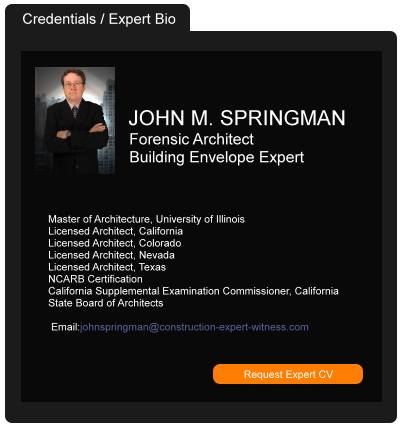Energy Company Covered for Business Interruption Losses Caused by Fire and Resulting in Town-Ordered Shutdown
February 15, 2021 —
David G. Jordan - Saxe Doernberger & Vita, P.C.In the case of NextSun Energy Littleton, LLC v. Acadia Ins. Co., the United States District Court of Massachusetts held that once direct physical damage from a covered peril causes a covered business interruption loss, any increase in the duration of such business interruption, due to the enforcement of an ordinance or law, extends the coverage period provided for lost income. The Court further held that a policy exclusion for business interruption due to the enforcement of any ordinance or law not in force at the time of the loss only applies when the ordinance or law itself, not the enforcement action that it authorizes, was not in force at the time of the loss.
The case involved a solar panel company, NextSun Energy Littleton (NextSun), that operated solar panel arrays providing electricity to the town of Littleton, Massachusetts. Due to a fire, 88 of the solar panels were damaged, and the Town immediately issued a “red-tag” order halting all energy-generating activity pending a safety inspection. The plaintiff purchased insurance for its panels along with “Energy Generating Income” (EGI) coverage, from the defendant, Acadia Ins. Co. (Acadia). The EGI policy covered “direct physical loss or damage” to “renewable energy generating equipment” and also covered the actual loss of surplus power income incurred during the interruption period. However, it excluded interruption of energy-generating income “caused by the enforcement of any ordinance, law, or decree … not in force at the time of loss.”
Read the court decisionRead the full story...Reprinted courtesy of
David G. Jordan, Saxe Doernberger & VitaMr. Jordan may be contacted at
DJordan@sdvlaw.com
California Supreme Court to Examine Arbitration Provisions in Several Upcoming Cases
December 09, 2011 —
CDJ STAFFGlen C. Hansen, writing on Abbott & Kinderman’s Land Use Law Blog looks at several cases pending before the California Supreme Court which ask if a developer can insist on arbitration of construction defect claims, based on provision in the CC&Rs. Currently, there is a split of opinions in the California appeals courts on the issue.
Four of the cases are in California’s Fourth Appellate District. In the earliest case, Villa Milano Homeowners Association v. Il Davorge, from 2000, the court concluded that the arbitration clause was sufficient to require that construction defect claims undergo arbitration. However, the Fourth Appellate District Court concluded in three later cases that the arbitration clauses did not allow the developer to compel arbitration. In two cases, argued in 2008 and 2010, the court concluded that to do otherwise would deprive the homeowners of their right to a jury trial. In the most recent case, Villa Vicenza Homeowners Association v. Nobel Court Development, the court decided that the CC&Rs did not create contractual rights for the developer.
The Second Appellate District Court came to a similar decision in Promenade at Playa Vista Homeowners Association v. Western Pacific Housing, Inc. In their decision, the court noted that CC&Rs could be enforced by homeowners and homeowners associations, but not developers.
Read the full story…
Read the court decisionRead the full story...Reprinted courtesy of
Changes to the Federal Rules – 2024
November 18, 2024 —
William L. Doerler - The Subrogation StrategistUnless Congress moves quickly, several amendments to the Federal Rules of Civil Procedure and Evidence will take effect December 1, 2024. Below is a brief description of the amendments.
Rules of Evidence
Rule 107 is a new rule. This rule addresses illustrative aids, stating that, if such aid helps the trier of fact to understand the evidence or an argument, a party may use the aid if its utility is not substantially outweighed by the danger of, among other things, unfair prejudice. As noted under the discussion of Rule 1006, below, an illustrative aid - offered only to help the trier of fact understand the evidence - is generally not admissible into evidence.
Rule 613 currently states that extrinsic evidence of a witness’s prior inconsistent statement is admissible only if the witness is given an opportunity to explain or deny the statement and the adverse party is given an opportunity to examine the witness about it, or if justice so requires. As amended, the court has the discretion to forego this requirement.
Read the court decisionRead the full story...Reprinted courtesy of
William L. Doerler, White and Williams LLPMr. Doerler may be contacted at
doerlerw@whiteandwilliams.com
Massachusetts Pulls Phased Trigger On Its Statute of Repose
December 21, 2020 —
Kyle Rice - The Subrogation SpecialistIn D’Allesandro v. Lennar Hingham Holdings, LLC, 486 Mass 150, 2020 Mass. LEXIS 721, the Supreme Judicial Court of Massachusetts answered a certified question regarding how to apply the Massachusetts statute of repose, Mass. Gen. Laws ch. 260, § 2B, in regards to phased construction projects. The court held that, in this context, the completion of each individual “improvement” to its intended use, or the substantial completion of the individual building and the taking of possession for occupancy by the owner or owners, triggers the statute of repose with respect to the common areas and limited common areas of that building. Additionally, the court held that where a particular improvement is integral to, and intended to serve, multiple buildings (or the development as a whole), the statute of repose is triggered when the discrete improvement is substantially complete and open to its intended use.
In D’Allesandro, the action arose out of the construction, marketing, sale and management of the Hewitts Landing Condominium (the Condominium) project. Ultimately, 150 units were constructed over 24 phases of construction, enclosed in 28 different buildings. Throughout construction, the project’s architect submitted declarations to the Town of Hingham swearing that the individual units were “substantially complete” and could be occupied for their intended use. The Town of Hingham then issued certificates of occupancy for the unit or building.
Read the court decisionRead the full story...Reprinted courtesy of
Kyle Rice, White and WilliamsMr. Rice may be contacted at
ricek@whiteandwilliams.com
Guidance for Structural Fire Engineering Making Its Debut
February 02, 2017 —
Nadine M. Post - Engineering News-RecordThe International Code Council has approved—as expected—the updated structural building-design standard, written by the American Society of Civil Engineers Structural Engineering Institute, for inclusion in the 2018 edition of the ICC’s model International Building Code. ICC’s validation committee certified “ASCE/SEI 7-16: Minimum Design Loads and Associated Criteria for Buildings and Other Structures,” and ICC’s board of directors confirmed it late last month, says Mike Pfeiffer, ICC’s senior vice president, technical services.
Read the court decisionRead the full story...Reprinted courtesy of
Nadine M. Post, ENRMs. Post may be contacted at
postn@enr.com
Florida’s Supreme Court Resolves Conflicting Appellate Court Decisions on Concurrent Causation
December 21, 2016 —
Afua S. Akoto – Saxe Doernberger & Vita, P.C.The Supreme Court of Florida kicked off December with an opinion that determined which theory of recovery applies when multiple perils combine to create a loss, and at least one of those perils is excluded by the terms of a policy. In Sebo v. American Home Assurance Company, Inc.,1 the court resolved the conflict between the Florida Appellate Courts for the Second District and the Third District and declared the concurrent cause doctrine (CCD) as the more applicable theory of recovery over the efficient proximate cause doctrine (EPC).
The underlying dispute concerned damage to a home Sebo purchased in Naples, Florida in April 2005. The American Home Assurance Company (AHAC) insured the home under a manuscript policy specifically created for the property with limits of over eight million dollars. In May 2005, Sebo discovered major water leaks in the main foyer, master bathroom, exercise room, piano room, and living room of the home. In August, paint fell off the walls after it rained, and it became clear that the house suffered from major design and construction defects. When Hurricane Wilma struck in October, the house was further damaged by rain water and high winds, and was eventually demolished.
Read the court decisionRead the full story...Reprinted courtesy of
Afua S. Akoto, Saxe Doernberger & Vita, P.C.Ms. Akoto may be contacted at
asa@sdvlaw.com
Partner Yvette Davis Elected to ALFA International’s Board of Directors
November 15, 2021 —
Yvette Davis - Haight Brown & Bonesteel LLPCongratulations to Haight Partner Yvette Davis who was elected by her peers to serve a three-year term on ALFA International’s 15 Member Board of Directors. The announcement was made during ALFA International’s Annual Business Meeting which took place in San Diego, California on October 20-22, 2021.
About ALFA International
ALFA International is the premier network of independent law firms. Founded in 1980, ALFA International was the first and continues to be one of the largest and strongest legal networks. We have 150 member firms throughout the world. Our 80 U.S. firms maintain offices in 95 of the 100 largest metropolitan areas. Our 70 international firms are located throughout Europe, Asia, Australia/New Zealand, Africa, Canada, Mexico and South America.
Read the court decisionRead the full story...Reprinted courtesy of
Yvette Davis, Haight Brown & Bonesteel LLPMs. Davis may be contacted at
ydavis@hbblaw.com
Pollution Exclusion Does Not Apply To Concrete Settling Dust
November 28, 2018 —
Tred R. Eyerly - Insurance Law HawaiiApplying Virginia law, the federal district court determined that the pollution exclusion did not bar coverage. Allied Prop. & Cas. Ins. Co. v. Zenith Aviation, Inc., 2018 U.S. Dist. LEXIS 14727 (E.D. Va. Aug. 29, 2018).
Zenith Aviation, Inc. hired Abby Construction Company to install an elevator at its warehouse. A wet saw was used to cut away concrete, but Abby did not use any water with the wet saw. This created a significant amount of concrete dust to leave the warehouse. Surrounding businesses contacted the fire department because they thought the dust was smoke from a fire. The concrete dust settled inside Zenith's building, damaging airplane parts stored in the warehouse.
Read the court decisionRead the full story...Reprinted courtesy of
Tred R. Eyerly, Damon Key Leong Kupchak HastertMr. Eyerly may be contacted at
te@hawaiilawyer.com


































































